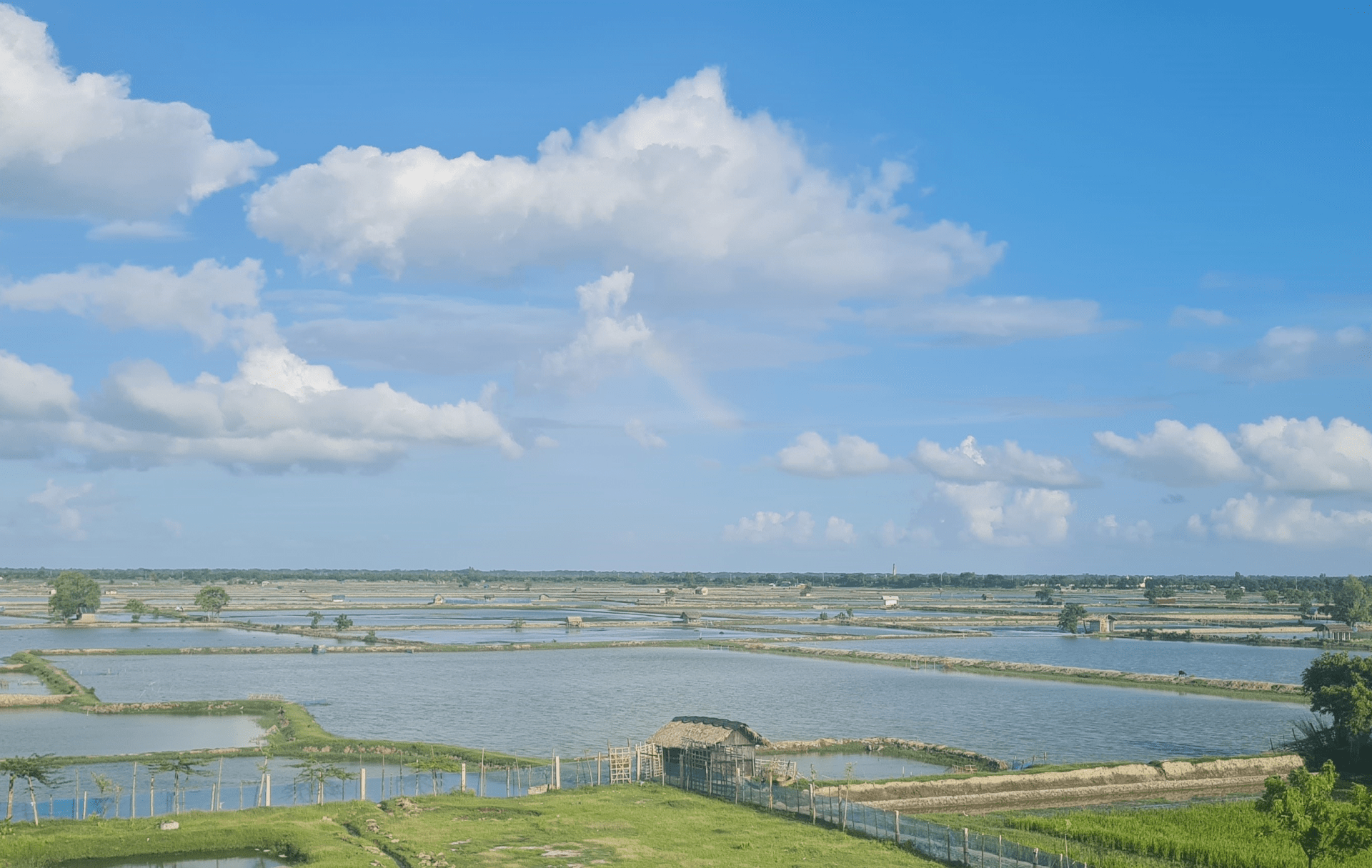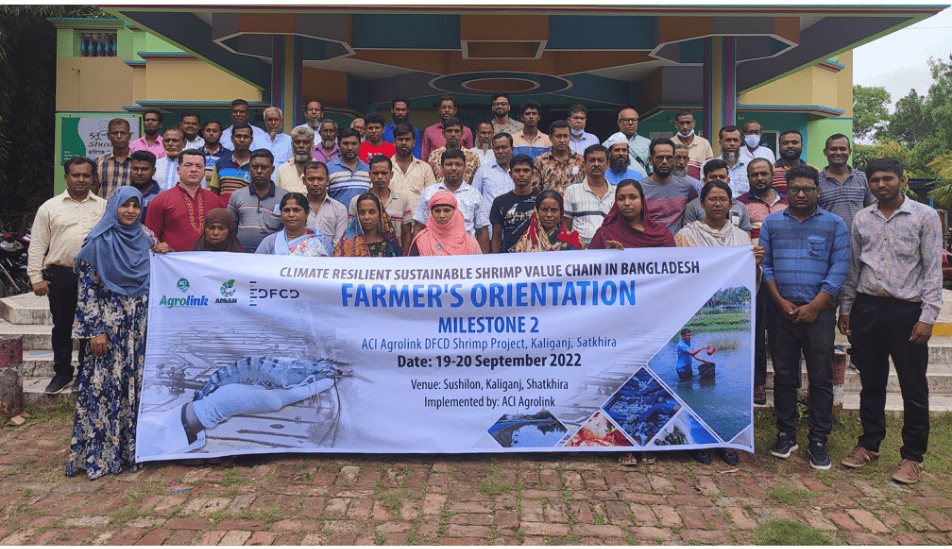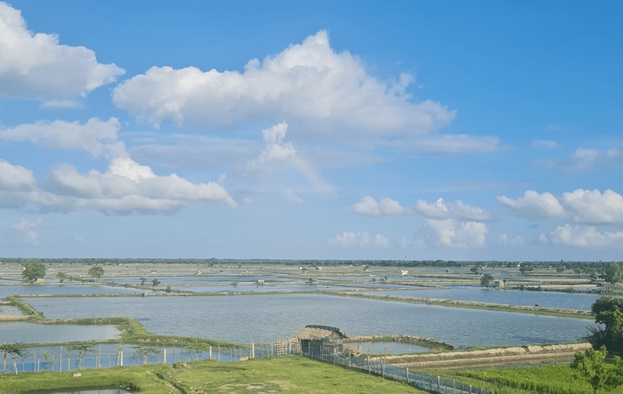At ACI Agrolink Ltd., social sustainability is a core pillar of our operations. We are committed to creating a safe, fair, and inclusive working environment while actively contributing to the well-being of our surrounding communities. Our practices are aligned with national labour standards and international ethical benchmarks, ensuring that our growth positively impacts people and society.
Key Economic Sustainability Indicators
1. Worker Welfare and Safety: The health and safety of our employees are of utmost importance. We ensure:
- Availability and regular use of Personal Protective Equipment (PPE) for all workers
- Strict compliance with the Bangladesh Labor Law & International Labor Laws
- Well-maintained workplace infrastructure with proper lighting, ventilation, and designated rest areas.
2.Fair Wages and Working Hours:
We uphold fair labor practices by:
- Providing wages that are above the legal minimum, promoting financial stability for workers.
- Offering clear, transparent employment contracts with no exploitative practices.
- Monitoring working hours to prevent excessive overtime, ensuring work-life balance.
3. Gender Equality: ACI Agrolink fosters an inclusive workplace where everyone is treated with respect and dignity:
- Equal opportunities in hiring, training, and promotion for female workers.
- Strict enforcement of anti-harassment policies and accessible grievance redressal mechanisms.
4. Local Employment and Community Engagement
We believe in growing together with our local community:
- A significant portion of our workforce is hired from the Satkhira region, contributing to local employment.
- We actively support community development initiatives related to healthcare, education, infrastructure, and livelihood programs.
Through these ongoing initiatives, ACI Agrolink Ltd. ensures that our business operations not only generate economic value but also uplift the lives of our employees and the surrounding community. Social sustainability is not just a goal—it is a responsibility we embrace every day.

Water comes through the river enters into shrimp ponds and shrimps are grown naturally. ACI Agrolink’s brand Amian hrimp collects shrimp from these farmers and process them in their factory located in the middle of the shrimp farming area in mian. The factory is a 43,000 sq ft building with the production capacity of 35 ton per day.
Factory location is giving Amian Shrimp an advantage on quick buying from the local farmers and this initiative also helped the local farmers to develop market linkage and through this they are managing their livelihood.
Amian Shrimp is indirectly saving the nature and directly helping the farmers on shaping a sustainable life.
State-of-the-art shrimp processing factory, compliance and global certifications leading to higher brand image are the drivers of our business.





Climate Resilient Sustainable Shrimp Value Chain in Bangladesh
ACI Agrolink DFCD Shrimp Project
Besides being crucial to the macroeconomic development of Bangladesh, shrimp sector sustainability is linked to the livelihoods of millions. Low farm productivity due to climate change coupled with lack of market integration and various compliance requirement are undermining the sustainability of this important sector. Low farm productivity can be linked to a myriad of climatic, management and input related problems while presence of intermediaries in the value chain with redundant roles makes it difficult to comply with food safety standards, leading to low price for their production.
In the southern region of Bangladesh farmers cannot produce any crops due to high salinity. Many farmers depend on Sundarbans for their livelihood as they cannot make enough money from shrimp cultivation. As a result, they make damage to natural habitant and the mangrove forest.
While the project will increase the farm productivity of shrimp and ensure good price with climate resilient sustainable shrimp production, this bottom of the pyramid people will return to land to produce shrimp.
The purpose of this project is to foster an enabling environment that drives shrimp sector to progressively enhance production efficiency and secure uninterrupted international market access while adapting changing climate condition.
The Partnership:
31st May 2022 to till 31 July 2023, through the Dutch Fund for Climate and Development, SNV will be providing ACI Agrolink with technical assistance to develop a business investment proposal on climate resilient black tiger shrimp
Target Population: 100 farmers in Kaliganj, Satkhira
Climate Resilient Sustainable Shrimp Value Chain in Bangladesh
ACI Agrolink Limited-DFCD Shrimp Project
Besides being crucial to the macroeconomic development of Bangladesh, shrimp sector sustainability is linked to the livelihoods of millions. Low farm productivity due to climate change coupled with lack of market integration and various compliance requirement are undermining the sustainability of this important sector. Low farm productivity can be linked to a myriad of climatic, management and input related problems while presence of intermediaries in the value chain with redundant roles makes it difficult to comply with food safety standards, leading to low price for their production.
In the southern region of Bangladesh farmers cannot produce any crops due to high salinity. Many farmers depend on Sundarbans for their livelihood as they cannot make enough money from shrimp cultivation. As a result, they make damage to natural habitant and the mangrove forest.
While the project will increase the farm productivity of shrimp and ensure good price with climate resilient sustainable shrimp production, this bottom of the pyramid people will return to land to produce shrimp.
The purpose of this project is to foster an enabling environment that drives shrimp sector to progressively enhance production efficiency and secure uninterrupted international market access while adapting changing climate condition.
The Partnership:
31st May 2022 to till 31 July 2023, through the Dutch Fund for Climate and Development, SNV will be providing ACI Agrolink with technical assistance to develop a business investment proposal on climate resilient black tiger shrimp
Target Population: 100 farmers in Kaliganj, Satkhira
ACI Agrolink Limited collects shrimp from these farmers and processes them in their factory located in the heart of the shrimp farming area in Amian.
The factory location is giving an advantage on quick buying from the local farmers, and this initiative also helped the local farmers to develop market linkage, and through this, they are managing their livelihood.
ACI Agrolink Limited is indirectly saving nature and directly helping the farmers in shaping a sustainable life.
State-of-the-art shrimp processing factory, compliance, and global certifications leading to a higher brand image are the drivers of our business.
The purpose of this project is to foster an enabling environment that drives shrimp sector to progressively enhance production efficiency and secure uninterrupted international market access while adapting changing climate condition.
Environmental Sustainability Indicators in Operations
To ensure environmentally responsible operations, we monitor and improve performance across the following key sustainability indicators:
1. Effluent Treatment
✅ Presence and operational effectiveness of Effluent Treatment Plants (ETPs)
✅ Compliance with discharge parameters set by the Department of Environment (DoE)
2. Water Use Efficiency
✅ Measurement of water use per kilogram of processed shrimp
✅ Implementation of recycled water systems or rainwater harvesting
3. Energy Use and Emissions
✅ Monitoring of energy consumption per ton of final product
✅ Adoption of renewable energy sources (e.g., solar energy integration)
✅ Tracking of greenhouse gas (GHG) emissions, especially for exports to carbon-conscious markets
4. Waste Management
✅ Environmentally responsible disposal or reuse of solid waste, shrimp shells, and offcuts
✅ Conversion of organic waste into fishmeal, compost, or agricultural fertilizer
5. Chemical Use and Control
✅ Safe storage, handling, and minimal use of chemicals such as phosphates, preservatives, and sanitisers
✅ Strict compliance with international export standards, such as EU Maximum Residue Limits (MRLs)

Climate Resilient Sustainable Shrimp Value Chain in Bangladesh
ACI Agrolink DFCD Shrimp Project
Besides being crucial to the macroeconomic development of Bangladesh, shrimp sector sustainability is linked to the livelihoods of millions. Low farm productivity due to climate change coupled with lack of market integration and various compliance requirement are undermining the sustainability of this important sector. Low farm productivity can be linked to a myriad of climatic, management and input related problems while presence of intermediaries in the value chain with redundant roles makes it difficult to comply with food safety standards, leading to low price for their production.
In the southern region of Bangladesh farmers cannot produce any crops due to high salinity. Many farmers depend on Sundarbans for their livelihood as they cannot make enough money from shrimp cultivation. As a result, they make damage to natural habitant and the mangrove forest.
While the project will increase the farm productivity of shrimp and ensure good price with climate resilient sustainable shrimp production, this bottom of the pyramid people will return to land to produce shrimp.
The purpose of this project is to foster an enabling environment that drives shrimp sector to progressively enhance production efficiency and secure uninterrupted international market access while adapting changing climate condition.
The Partnership:
31st May 2022 to till 31 July 2023, through the Dutch Fund for Climate and Development, SNV will be providing ACI Agrolink with technical assistance to develop a business investment proposal on climate resilient black tiger shrimp
Target Population: 100 farmers in Kaliganj, Satkhira





